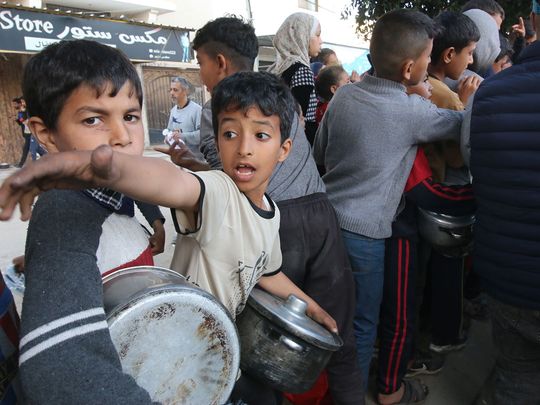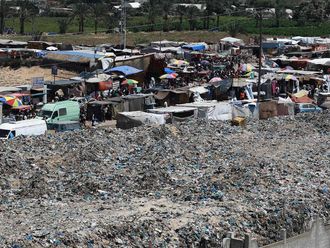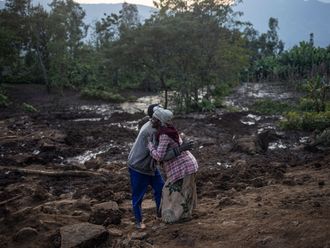
Brussels: Air drops and a maritime corridor will not be enough to make up for supplies transported by trucks into Gaza, where people are on the verge of famine, the European Union’s top humanitarian aid official said on Thursday.
“On maritime and air routes for humanitarian aid to Gaza, I’ll be very clear: we and others are doing that exclusively because Israel is not opening more land routes,” said Janez Lenarcic, the EU’s humanitarian aid and crisis management chief, adding that land routes were best to get supplies into Gaza.
“There is a risk of famine,” Lenarcic told reporters. “We already have a very strong and credible indication that there are pockets of famine already in the Gaza Strip.” Gaza has been effectively sealed off since Israel began its war with Hamas in response to the militant group’s Oct.7 attack on Israel.
The United Nations estimates more than half a million of 2.3 million people there are on the brink of starvation. UN agencies said earlier this month that child malnutrition levels were “particularly extreme” in the northern part of the enclave.
Lenarcic called for more land entry points from the north, noting that the UN delivered food to northern Gaza on March 12 for the first time in three weeks.
“What is needed is very clear: a surge in humanitarian aid into Gaza and its distribution throughout Gaza,” said Lenarcic.
‘Emergency ward’
Israel denies obstructing aid deliveries into Gaza. It has blamed failures by aid agencies for delays and has accused Hamas of diverting aid. Hamas denies this and says Israel uses hunger as a weapon in its military offensive.
With international pressure mounting on Israel to address hunger in the enclave, the European Union, the United States, the United Nations and others have been trying to set up a maritime aid corridor from Cyprus.
Two ships carrying about 500 tonnes of humanitarian aid are already en route to Gaza where a US-based charity World Central Kitchen has started building an offloading jetty, which Lenarcic said the US would expand next month.
Lenarcic spoke ahead of a humanitarian conference in Brussels on Monday where he said his EU executive Commission will pledge some 1.8 billion euros ($1.96 bln) towards meeting global needs in 2024.
Last year, EU member states and the European Commission pledged 8.4 billion euros in total, a figure Lenarcic hoped to see matched or topped this year.
The UN says a record 300 million people globally are in need of humanitarian help, mostly due to a growing number of armed conflicts, as well as - increasingly - climate change. It estimates the world-wide funding gap at nearly $50 billion.
“Humanitarian aid is like an emergency ward in a hospital.
It is the first assistance,” Lenarcic said, adding that solving humanitarian crises required addressing their causes.










_resources1_16a30b3523c_small.jpg)

